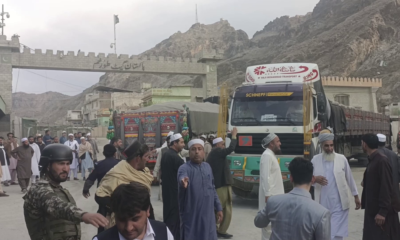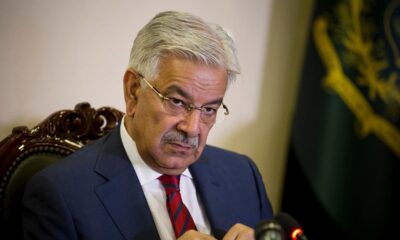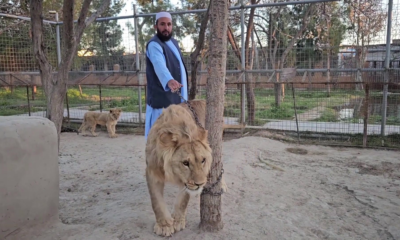Business
Kabul working with UAE to digitize customs ports

Afghanistan has sought the UAE’s help to digitize its logistics infrastructure in order to facilitate regional trade in its push to become a bridge between South and Central Asia and the Gulf.
According to Emirates News Agency (WAM), Afghan Ambassador to the UAE Javid Ahmad said in an interview Afghanistan has a “planned large-scale programme on digitalisation with the UAE, which would involve digitalisation of our trade and logistics infrastructure.”
He said Afghanistan is in talks with a UAE firm to look into the schematics of the country’s dry ports and customs ports to see how they can mainstream the customs revenue collection, WAM reported.
“That’s very important for us, because an estimated 46 percent of our government revenues come from customs but the current system allows some loopholes for leakages, waste and misallocations,” Ahmad said.
“We believe that if we want Afghanistan to be the land bridge between South and Central Asia, regional connectivity is important, especially as part of our own plan for economic growth,” he said.
Afghanistan wants to extend its connectivity beyond South and Central Asia towards Arabian Gulf, particularly the UAE, through Port Qasim in Karachi, Pakistan and Chabahar Port in south-eastern Iran, he explained.
“We need to get logistics revamped and we are engaged with the UAE firm to see whether they could come and study to completely reform and restructure it, which would also include technology transfer,” Ahmad told WAM.
He said Afghanistan realises the future is digital and said government was also working with the UAE to create a unified communication infrastructure network, especially for key government institutions. “That includes important technological support, for example, on data integration systems. We are engaging with the UAE on this and it is a flagship project,” he said.
Ahmad also revealed that efforts are underway to establish a joint UAE-Afghanistan Business Council.
He said other priority sectors included the bilateral economic agenda, agriculture and aviation sectors.
The aviation sector is important “especially because the UAE’s three-company consortium is already managing four of our international airports. So now we’re looking to see how in the aviation sector UAE’s engagement could deepen to include, for example, building a passenger terminal, building a cargo terminal, as well as establishing a logistical and food processing zone,” the envoy explained.
Business
Pakistan appoints 26 new jirga members for border crisis talks in Afghanistan
Customs sources have said trade suspension is causing an estimated daily loss of $3 million in bilateral trade
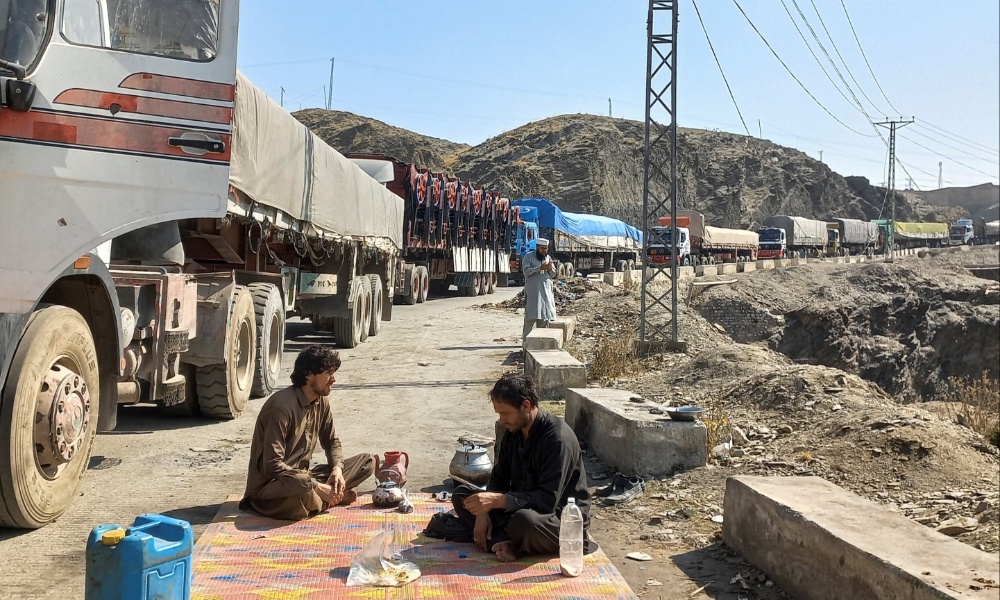
The Pakistani authorities have appointed a new 26-member jirga to hold further talks in Afghanistan over reopening Torkham border after the first round of talks hit a stalemate last week.
Torkham crossing was closed almost a month ago when Pakistan border officials opposed the reconstruction and renovation of a security check post on the Afghan side.
Sources told Pakistan’s Dawn news outlet that the new jirga would consist of 26 members, including experienced and influential tribal elders and local traders who are mostly members of Khyber Chamber of Commerce and Industry.
The source told Dawn talks could resume today, Monday March 17.
Torkham, a key border crossing between Pakistan and Afghanistan in the Khyber District of Khyber Pakhtunkhwa, remained closed for the 24th day on Monday amid rising concerns among traders of both countries who have suffered enormous losses due to the closure.
The crossing was closed on February 21 after escalation of tensions between the border forces on both sides. During subsequent exchanges of fire, three Afghan soldiers died while eight Pakistani paramilitary troops also sustained injuries.
Customs sources have said trade suspension is causing an estimated daily loss of $3 million in bilateral trade adding that over the first 20 days, approximately $60 million in trade was lost.
Torkham Border Crossing facilitates the daily movement of around 10,000 people to Afghanistan and is a key trade route between the two countries. Over 5,000 trucks, including those carrying perishable goods, are currently stranded, causing heavy financial losses.
Business
Uzbekistan investors show keen interest in mining and construction sectors
The Uzbek Ministry of Investment, Industry and Trade said last month that Uzbekistan and Afghanistan plan to increase the trade turnover to $3 billion.

Uzbek investors met last week with Afghanistan’s Deputy Minister of Commerce and Industry, Ahmadullah Zahid, and showed an interest in the construction and mining sectors in Afghanistan. The Ministry of Commerce and Industry (MoCI) said in a statement after the meeting that the Uzbek delegation had been assured that Afghanistan was secure and that there are vast investment opportunities in the construction and mining sectors.
Zahid reaffirmed the government’s commitment to supporting both domestic and foreign investors, ensuring a favorable business environment. He also said he hoped the investments would help boost Afghanistan’s economy and further strengthen economic relations between the two neighbouring nations. This comes after Uzbekistan opened a trade center in the northern city of Mazar-e-Sharif early this month.
The trade center provides Uzbek entrepreneurs with a platform to market their goods in Afghanistan.
Trade turnover between Uzbekistan and Afghanistan totalled $153.7 million in January 2025. This is 231 percent more against the same period last year ($46.3 million in January 2024).
The Uzbek Ministry of Investment, Industry and Trade said last month that Uzbekistan and Afghanistan plan to increase the trade turnover to $3 billion.
The latest development comes amid concerted efforts by both countries to boost their cross-border trade relations.
Business
Afghanistan records trade volume of $292 million via air corridors in 1403 solar year

Afghanistan’s Ministry of Industry and Commerce says that in the solar year 1403 (April 2024 to March 2025), goods worth $292 million were transported through air corridors.
Abdulsalam Jawad Akhundzada, the ministry’s spokesman, said that the value of exports through air corridors this year totalled $125 million and imports $167 million.
He added that the main export items were dried fruits, saffron, dried and fresh figs, jujubes, pine nuts and handicrafts, and the main import items were medicines and electronic devices.
Akhundzada said that exports happened through Kabul, Kandahar and Mazar-i-Sharif airports to the United States, Germany, China, India, Britain, South Africa, Austria, United Arab Emirates and some other countries.
-

 Latest News5 days ago
Latest News5 days agoTrump says he would have kept Bagram Air Base
-

 Latest News5 days ago
Latest News5 days agoIMF’s executive board briefed on economic developments in Afghanistan
-
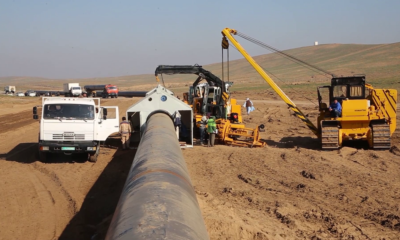
 Latest News4 days ago
Latest News4 days agoMines ministry says work on TAPI project to speed up as weather improves
-

 Latest News5 days ago
Latest News5 days agoTrump administration weighs travel ban on dozens of countries including Afghanistan
-
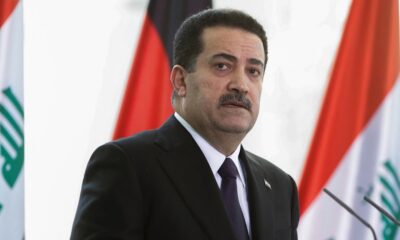
 Regional5 days ago
Regional5 days agoIraqi PM says Daesh leader for Iraq and Syria killed
-

 Latest News4 days ago
Latest News4 days agoVoice of America staff put on leave, Trump ally says agency ‘not salvageable’
-
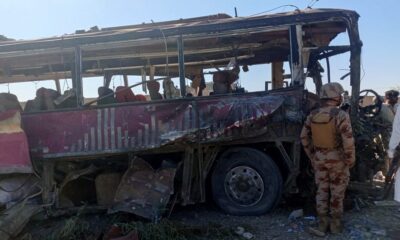
 Regional4 days ago
Regional4 days agoSeparatist suicide attack in southwestern Pakistan kills at least five
-
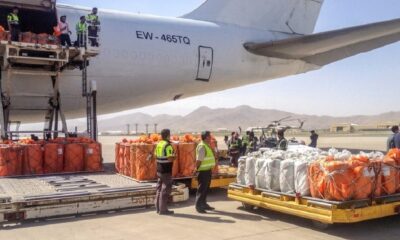
 Business3 days ago
Business3 days agoAfghanistan records trade volume of $292 million via air corridors in 1403 solar year


